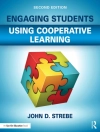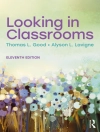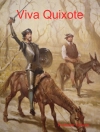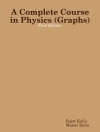There has been a growing interest in the notion of a scholarship of teaching. Such scholarship is displayed through a teacher’s grasp of, and response to, the relationships between knowledge of content, teaching and learning in ways that attest to practice as being complex and interwoven. Yet attempting to capture teachers’ professional knowledge is difficult because the critical links between practice and knowledge, for many teachers, is tacit. Pedagogical Content Knowledge (PCK) offers one way of capturing, articulating and portraying an aspect of the scholarship of teaching and, in this case, the scholarship of science teaching. The research underpinning the approach developed by Loughran, Berry and Mulhall offers access to the development of the professional knowledge of science teaching in a form that offers new ways of sharing and disseminating this knowledge. Through this Resource Folio approach (comprising Co Re and Pa P-e Rs) a recognition of the value of the specialist knowledge and skills of science teaching is not only highlighted, but also enhanced. The Co Re and Pa P-e Rs methodology offers an exciting new way of capturing and portraying science teachers’ pedagogical content knowledge so that it might be better understood and valued within the profession. This book is a concrete example of the nature of scholarship in science teaching that is meaningful, useful and immediately applicable in the work of all science teachers (preservice, in-service and science teacher educators). It is an excellent resource for science teachers as well as a guiding text for teacher education. Understanding teachers’ professional knowledge is critical to our efforts to promote quality classroom practice. While PCK offers such a lens, the construct is abstract. In this book, the authors have found an interesting and engaging way of making science teachers’ PCK concrete, useable, and meaningful for researchers and teachers alike. It offers a new and exciting way ofunderstanding the importance of PCK in shaping and improving science teaching and learning. Professor Julie Gess-Newsome Dean of the Graduate School of Education Williamette University This book contributes to establishing Co Res and Pa P-e Rs as immensely valuable tools to illuminate and describe PCK. The text provides concrete examples of Co Res and Pa P-e Rs completed in “real-life” teaching situations that make stimulating reading. The authors show practitioners and researchers alike how this approach can develop high quality science teaching. Dr Vanessa Kind Director Science Learning Centre North East School of Education Durham University
Daftar Isi
ACKNOWLEDGMENTS; PREFACE TO SECOND EDITION; CHAPTER ONE Teaching; CHAPTER TWO Pedagogical Content Knowledge; CHAPTER THREE Portraying PCK; CHAPTER FOUR Particle theory; CHAPTER FIVE Chemical reactions SECTION ONE; SECTION TWO; CHAPTER SIX Circulatory system; CHAPTER SEVEN Force; SECTION ONE; SECTION TWO; CHAPTER EIGHT Electric circuits; CHAPTER NINE Genetics; CHAPTER TEN Examining the use and value of Co Res and Pa P-e Rs; CHAPTER ELEVEN Science teaching and teacher education; REFERENCES; INDEX.












